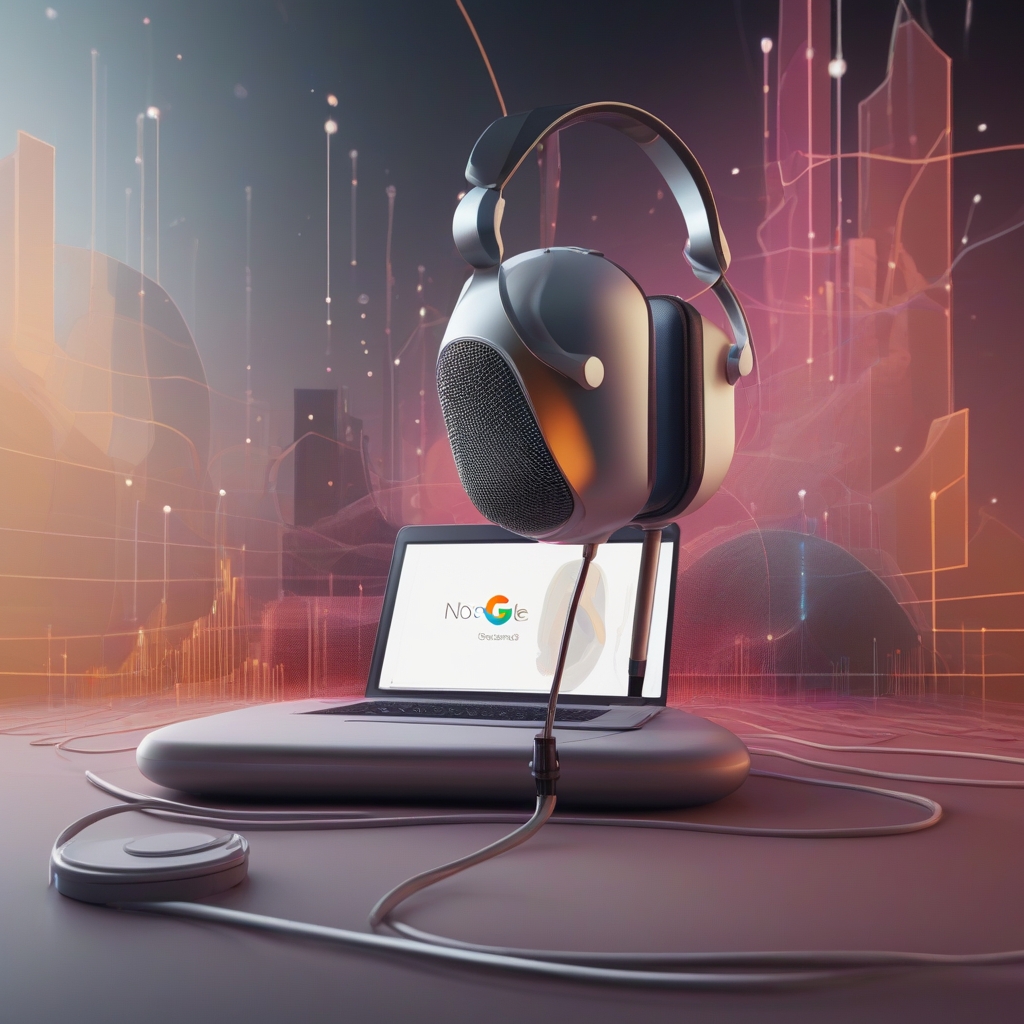Introduction to AI-Generated Podcasts
The landscape of podcasting is undergoing a revolutionary shift, driven by the integration of Artificial Intelligence (AI). Traditional podcast creation often involves extensive planning, scripting, and editing, which can be time-consuming. Enter Google’s NotebookLM, an AI-powered tool that innovates the way podcasts are generated. In this article, we’ll explore how NotebookLM can streamline and elevate podcast production.
What is Google’s NotebookLM?
- **AI-Powered Tool**: NotebookLM, developed by Google, leverages large language models to generate content effortlessly.
- **Versatile Application**: Originally designed for summarizing and note-taking, it’s adaptable to other content creation, including podcast scripts.
- **User-Friendly Interface**: With an intuitive design, users with no AI background can easily navigate and utilize its capabilities.
Key Features of NotebookLM
- **Advanced Text Generation**: Creates high-quality, coherent written content.
- **Adaptive Learning**: Learns from user inputs to improve the relevance and quality of generated content.
- **Integration Capabilities**: Can be linked with other Google tools like Docs and Sheets for a seamless workflow.
- **Customizable Outputs**: Offers customization options to tailor the content according to specific needs.
The Benefits of Using AI for Podcast Generation
AI in podcast production provides numerous advantages over traditional methods. Here’s a closer look at how NotebookLM enhances podcasting:
Efficiency and Speed
Automated Content Creation: One of the standout features of NotebookLM is its ability to generate scripts quickly. Traditional methods of scriptwriting can be time-intensive. With AI, a draft can be produced in minutes, allowing creators to focus on fine-tuning and personalization.
Consistency and Quality
High-Quality Content: NotebookLM employs advanced algorithms to ensure that the generated content is not only coherent but also engaging and relevant. By maintaining a high consistency in quality, podcasters can produce episodes that keep their audiences hooked.
Customization and Adaptability
Personalization: Unlike generic text-generators, NotebookLM adapts to the user’s style and preferences. It takes into account the feedback and adjusts the generated content accordingly. This ensures that the podcast retains a unique voice and style, characteristic of its creator.
Cost-Effective Solution
Budget-Friendly: Traditional podcasting often requires hiring scriptwriters, editors, and sometimes even voice actors, which can be expensive. By utilizing NotebookLM, creators can significantly reduce these costs. The AI tool can handle multiple aspects of content creation, making it a cost-effective alternative.
How to Create an AI-Generated Podcast with NotebookLM
Here’s a step-by-step guide to help you get started:
1. Setting Up
Create an Account: If you don’t already have a Google account, create one. Access NotebookLM via the Google Workspace.
Familiarize Yourself: Take some time to explore the interface. Familiarize yourself with the different features and how to navigate through the tool.
2. Input Data
Provide Context: Feed NotebookLM with relevant data, outlines, or topics you’d like to cover in your podcast. The quality and relevance of the input data can significantly impact the output.
Define Parameters: Set parameters such as the tone, length, and style of the content. This ensures that the generated script aligns with your vision.
3. Generate Content
Run the Tool: Use NotebookLM to generate the script. Review the draft to ensure it meets your expectations. You can iterate this process by tweaking the inputs and parameters.
Edit and Refine: While NotebookLM produces high-quality content, a human touch can enhance the final output. Edit the script for finer details and add personal nuances.
4. Final Touches
Voice Recording: Once satisfied with the script, proceed to the recording phase. You can use professional recording equipment or even high-quality software for this step.
Post-Production: After recording, edit the audio file to smooth out any inconsistencies. Add in effects, music, or any other elements that can enrich the listening experience.
Future Prospects of AI in Podcasting
The adoption of AI tools like NotebookLM is just the beginning of a larger trend. Here are some future prospects to consider:
Enhanced Interactivity
Incorporating AI into podcasts can lead to more interactive content. Future advancements could see AI generating real-time responses to listener questions during live podcasts.
Personalized Listening Experiences
AI can tailor podcast content to individual listener preferences, curating episodes that align with the interests and behaviors of different audience segments.
Multilingual Podcasts
AI could break language barriers by generating multi-language content. This would allow podcasters to reach a global audience without needing extensive translation services.
Conclusion: Embrace the Future of Podcasting
Google’s NotebookLM is a game-changer in the realm of content creation, particularly for podcasts. Its potential to automate, personalize, and enhance the podcasting process makes it an invaluable tool for both novice and experienced creators. As AI technology continues to evolve, its integration into podcasting promises a future where content is not only more accessible but also more innovative and engaging. Embrace this change and transform the way you create and consume podcasts.

Leave a Reply